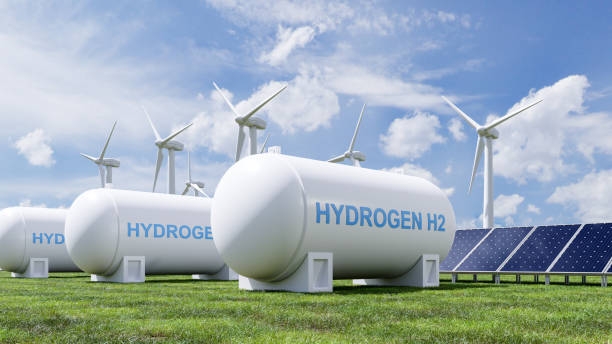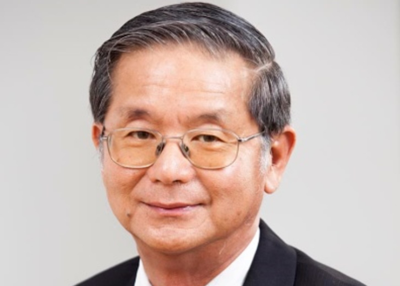Japan’s Hydrogen Promotion Act: Opportunities for Australia

By Asia Society-Victoria Distinguished Fellow, Tatsuya Terazawa, Chairman and CEO of the Institute of Energy Economics, Japan (IEEJ)
Although there is hope for a greener future, without decarbonizing the hard-to-abate sectors, we cannot achieve carbon neutrality. To achieve this, hydrogen will be crucial. Hydrogen, together with its derivative ammonia, will also be key to decarbonising thermal power generation. For this reason, there is a strong global interest in these burgeoning energy sources.
But the transition to hydrogen/ammonia is not easy. The biggest challenge is its high cost. This is why Japan has announced its plan to introduce legislation, the Hydrogen Promotion Act, to provide a framework to offset the cost differential between hydrogen/ammonia and conventional energies for 15 years through supported projects. The Japanese Government has also announced its plan to allocate 3 trillion yen, about AUD30 billion, to promote hydrogen/ammonia. Japan is committed to developing the initial market with strong policy support. This framework will be applicable for both domestically produced hydrogen/ammonia and imported hydrogen/ammonia. It will also support both hydrogen/ammonia using renewable energies and hydrogen/ammonia produced from fossil fuels alongside carbon capture storage.
Australia has the potential to become a major supplier of hydrogen/ammonia to Japan just as it has been supplying more than 40% of Japan’s LNG. The continent is endowed with rich renewable energies, as well as abundant fossil fuels, both of which can be used to produce hydrogen/ammonia. In fact, the first liquified hydrogen to Japan was exported from Victoria, produced from its abundant brown coal. To establish Australia’s position as a major supplier of hydrogen/ammonia, it will be strategically important to be among the first suppliers of hydrogen/ammonia to Japan. For this to happen, it will be essential for Australian hydrogen/ammonia to receive the support of the Hydrogen Promotion Act. But what are the challenges ahead?
The 3 trillion-yen budget allocation is substantial. Yet, while the budget required to support each project over 15 years is huge, Japan will not be able to support all planned projects. With many projects being discussed globally, project selection will be highly competitive. While I would love to see Australian projects be selected to become Japan’s largest supplier of hydrogen/ammonia and solidify our strong relationship, needless to say, the Australian hydrogen/ammonia projects will have to demonstrate their competitiveness to the Japanese Government that will decide the projects to be supported.
US produced hydrogen/ammonia has the advantage of being supported by the massively powerful Industrial Relations Act (IRA). Moreover, Canada has introduced its own policies to match the IRA. Another competitor is the Middle East, being endowed with both abundant fossil fuels and renewable energies, as well as being backed by the huge petro-dollars it has accumulated. Chilean hydrogen/ammonia enjoys the benefits of the world’s cheapest renewable energies in both solar and wind. While it is a tough field for Australian hydrogen/ammonia, what could make it an attractive candidate?
Australia’s Hydrogen Headstart program is a good first step. But its total scale of AUD2 billion is frankly modest. The program excludes blue hydrogen/ammonia produced from fossil fuels while other global competitors do not make such an exclusion. It is also perceived to favor domestic markets and domestic players. In the global competition, these will be serious handicaps. I sincerely hope that these points could be addressed very soon.
What can then be the greatest appeal of Australian hydrogen/ammonia? It is the predictability of the investment environment which has historically attracted Japanese investors in the Australian energy sector. Predictability is essential as hydrogen/ammonia projects will be long-term investments.
Recently, uncertainties have come to the fore. Large-scale projects are now held back by the need for permits and opposition from local stakeholders. As hydrogen/ammonia projects are large scale and expensive, the perceived risk of delays is not helpful. Changes in policies have significantly affected existing/ongoing energy projects in Australia. While Japanese players are not opposed to those policy changes per se, due respect to the legitimate interests of the investors who have made long and substantial commitments could be better honoured. Facilitation of compliance with new policies can be very helpful in this regard.
The Hydrogen Promotion Act is expected to be enacted by the end of this summer. The formal process for selecting the projects to be supported will start with that enactment. I sincerely hope that effective measures will be put into place within time to improve the attractiveness of Australian hydrogen/ammonia.
Tatsuya Terazawa, Chairman and CEO of the Institute of Energy Economics, Japan (IEEJ), is the fourth and current Asia Society-Victoria Distinguished Fellow, appointed in July 2023.
This article originally appeared in the Australian Financial Review.



